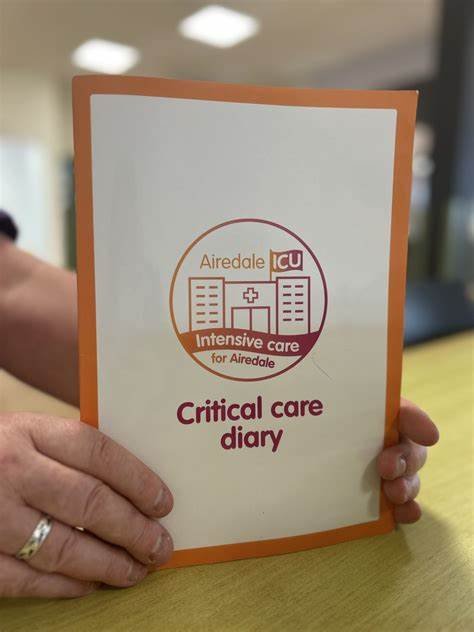How to navigate ethical decisions in intensive care is a significant concern for healthcare professionals, patients, and their families. Intensive care units (ICUs) often present challenging situations where medical, ethical, and emotional issues intersect. These decisions can deeply affect patients’ lives, making it crucial to approach them with care and thoughtfulness. In this article, we’ll outline essential strategies for effectively navigating ethical dilemmas in intensive care settings.
Understand the Ethical Principles
To navigate ethical decisions in intensive care, it’s vital first to understand the fundamental ethical principles. The four main principles are autonomy, beneficence, non-maleficence, and justice.
- Autonomy refers to respecting patients’ rights to make decisions about their own care. This includes considering their wishes and values.
- Beneficence involves acting in the best interest of the patient and providing treatments that benefit them.
- Non-maleficence means avoiding harm to patients. Healthcare providers must weigh the risks and benefits of treatments.
- Justice pertains to fairness and equality in providing care. It ensures that all patients receive equal treatment and access to medical resources.

Understanding these principles can guide healthcare professionals in making ethical decisions.
Engage in Open Communication
Open communication is essential when navigating ethical decisions in intensive care. Healthcare providers should encourage discussions among the medical team, patients, and families. By fostering an environment where everyone feels comfortable expressing their thoughts and concerns, healthcare professionals can gain valuable insights into the patients’ values and preferences.
When families are involved in discussions about care, they can share important information about the patient’s wishes and previous decisions. This collaboration can help everyone reach a consensus that respects the patient’s autonomy while considering medical advice.
Consult Ethics Committees
When faced with challenging ethical decisions, consulting an ethics committee can be beneficial. These committees consist of diverse professionals with expertise in ethics, law, and medicine. They can offer guidance and support in complex situations.
Ethics committees can help clarify ethical dilemmas and provide recommendations for handling them. Their involvement can also provide reassurance to healthcare providers and families, ensuring that decisions are made thoughtfully and respectfully.
Consider the Patient’s Quality of Life
An essential aspect of navigating ethical decisions in intensive care is considering the patient’s quality of life. Healthcare providers should assess how medical interventions may impact the patient’s overall well-being. This evaluation should take into account the patient’s physical, emotional, and social needs.
When weighing treatment options, it is important to consider whether the interventions will significantly improve the patient’s quality of life or merely prolong suffering. Open conversations with patients and families about these concerns can lead to more compassionate and ethically sound decisions.
Respect Cultural and Religious Beliefs
Respecting cultural and religious beliefs is crucial when navigating ethical decisions in intensive care. Patients and their families may have specific beliefs that influence their preferences for medical care. Understanding and honoring these beliefs can help healthcare providers make ethical decisions that align with patients’ values.
Healthcare professionals should actively seek to learn about the cultural and religious backgrounds of their patients. This awareness can guide them in providing respectful and patient-centered care.
Make Decisions Collaboratively
Collaborative decision-making is another key strategy in navigating ethical decisions in intensive care. Involving the entire healthcare team, along with the patient and their family, can lead to better outcomes. Each team member brings unique perspectives and expertise, which can enrich the decision-making process.
When everyone works together, it fosters a sense of shared responsibility and trust. This approach ensures that all voices are heard, leading to more informed and balanced decisions that prioritize the patient’s needs.
Document Decisions Thoroughly
Documenting ethical decisions is crucial in the intensive care setting. Clear and thorough documentation can provide transparency and accountability in the decision-making process. It also serves as a reference for future care and discussions.
Healthcare providers should record the rationale behind their decisions, the input from the patient and family, and any relevant ethical principles considered. This documentation helps ensure continuity of care and can assist other healthcare providers in understanding the patient’s situation.
Reflect on Personal Values
Navigating ethical decisions in intensive care can be emotionally challenging for healthcare professionals. It’s essential to reflect on personal values and biases that may influence decision-making. Acknowledging these feelings can help providers remain objective and focused on the patient’s best interests.
Regularly engaging in self-reflection and seeking support from colleagues can promote emotional resilience. This practice can also help healthcare professionals navigate ethical dilemmas more effectively.
Stay Informed on Ethical Guidelines
Finally, staying informed about current ethical guidelines and practices is vital for navigating ethical decisions in intensive care. Many organizations, including hospitals and professional associations, provide resources and training on ethical issues in healthcare.
By keeping up-to-date with ethical guidelines, healthcare providers can make informed decisions that align with best practices and ensure high-quality care for their patients.
Conclusion
Navigating ethical decisions in intensive care is a complex but essential part of providing quality patient care. By understanding ethical principles, engaging in open communication, and considering the patient’s quality of life, healthcare professionals can make compassionate decisions that honor patients’ rights and preferences. Collaborative decision-making, respect for cultural beliefs, and thorough documentation also play crucial roles in this process. As we navigate these challenging situations, staying informed and reflecting on our values can help ensure that we provide the best possible care for our patients.











